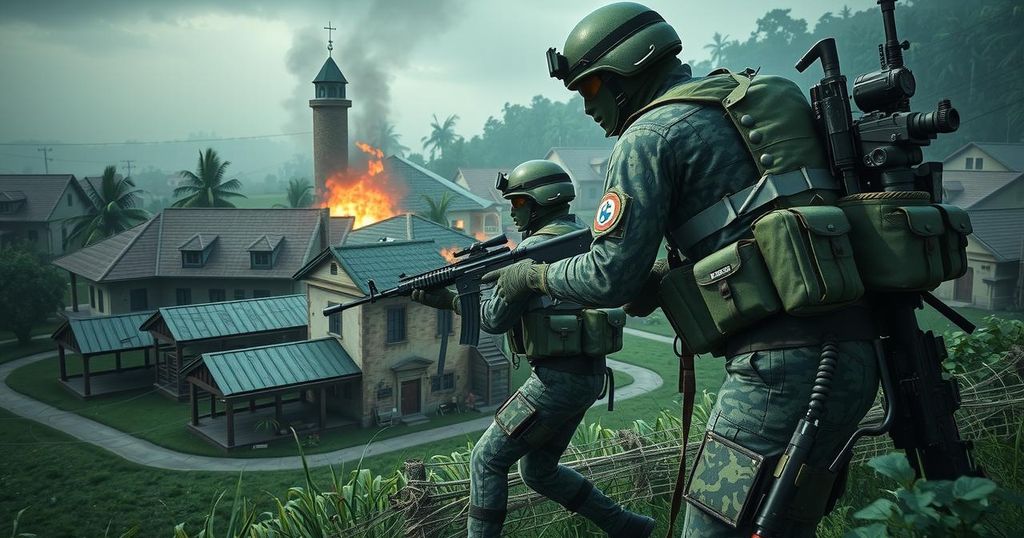On January 4, Rwanda-backed M23 rebels captured the strategic town of Masisi in eastern DRC, heightening concerns of a humanitarian crisis. Deputy Alexis Bahunga called for enhanced military support for the Congolese army amid fears of escalating violence and further territorial loss. The M23’s actions represent a significant challenge to regional stability, as peace negotiations have broken down, exacerbating the longstanding conflict in the region.
On January 4, the Rwanda-supported March 23 Movement (M23) took control of Masisi, a pivotal town in eastern Democratic Republic of Congo (DRC). This group has aggressively expanded its territory in the region since 2021, resulting in significant displacement of individuals and leading to a humanitarian crisis. Tensions recently escalated when negotiations between DRC President Felix Tshisekedi and Rwandan President Paul Kagame, aimed at peace in the region, were abruptly terminated in mid-December due to unresolved disagreements.
Local authorities, including North Kivu’s deputy Alexis Bahunga, expressed grave concern over M23’s actions, indicating that the capture of Masisi exacerbates the ongoing humanitarian situation. Bahunga pleaded for the government to implement comprehensive measures to enhance the capabilities of the Congolese army, known as FARDC. Residents reported that M23 rebels convened community meetings, claiming to have come for the liberation of the country. Amidst the chaos, many civilians sought refuge from gunfire in local hospitals and churches, witnessing several injuries although there were no deaths reported thus far.
Reports indicate that the violence began earlier that day with confrontations between M23 rebels and the Congolese army before the former ultimately overpowered the area. The capture of Masisi has sparked fears of further instability, as the DRC’s eastern region has long suffered from conflicts fueled by local insurgents and foreign militias. The mineral-rich land has endured turmoil for over three decades, a legacy rooted in the regional wars of the 1990s.
This recent escalation poses a great challenge for the DRC, further complicating efforts for peace and stability in a region plagued by continuous violence and humanitarian distress. The international community’s attention is crucial to address the unfolding crisis and support the affected populations adequately.
The eastern Democratic Republic of Congo has been a hotspot for conflict for many years, primarily due to its rich mineral resources and the presence of numerous armed groups. The M23 militia, backed by Rwanda, emerged in the early 2010s and has historically exploited local grievances and regional tensions to gain control over territories. The United Nations and various organizations have reported on the humanitarian crises in the area, where violence has led to massive displacements, hunger, and instability. The recent failure of peace talks further complicates the already delicate situation, raising concerns about the path forward for affected communities and regional security.
The seizure of Masisi by M23 rebels is a critical development reflecting ongoing tensions in eastern DRC. It underscores the urgent need for diplomatic efforts aimed at peace and stabilization in the region. The concerted response among regional leaders, local governance, and international bodies will be essential to mitigating the humanitarian crisis and restoring order amidst the cycle of conflict that has long plagued this area.
Original Source: www.lemonde.fr






